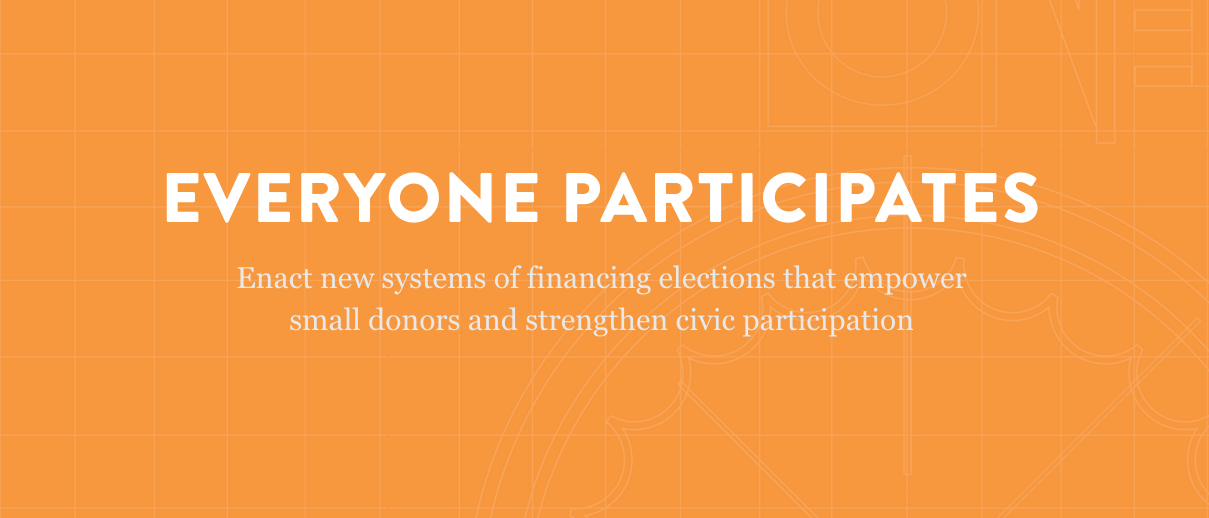Archived
Why 2016 will be a Great Year for Money-in-Politics Reform
Happy New Year, America! Yesterday, we told you all about the positive reforms that took place during 2015. Reformers should feel proud of their hard work, and you should take…
Archived
Over the coming weeks, we’ll be highlighting policies from the Blueprints for Democracy, a new collection of solutions policymakers can implement to give everyone a greater say in their democracy. Read the full series here.
Citizen funding programs, known elsewhere as public financing, offer a proven and effective means of empowering the general public to participate in the democratic process. Under the current status quo, large donors have their voices heard and their priorities frontloaded because these individuals are the ones who can afford to underwrite increasingly expensive campaigns.
In order to expand political participation and increase the relative influence of the small-dollar donor, the various forms of citizen funding programs provide funds to candidates who pledge to raise small contributions in their communities and limit the amount they accept from any individual donor.
Citizen funding better serves those involved in elections on both sides—candidates and voters. Those running for office can campaign, visibly unbeholden to special interests, all the while actually building a broad base of constituent support by going to community meetings and town halls, rather than spending so much time fundraising.
There are several types of citizen funding, each with different characteristics and benefits.
Citizen funding programs help to revitalize democracy by enabling more people to participate. The political system these programs create is not only more open, it’s stronger and more responsive, since politicians will advocate for the people who funded their campaigns—in this case, their constituents. With their issues being heard, voters feel more represented, which leads them to become further invested in policy and governance. This is exactly the kind of positive cycle we desperately need in our political system.
In the next Blueprints for Democracy post, we’ll look at the states and cities that have already put these effective reforms in place, along with the lessons other policymakers can learn from their innovations.
Issue: Money in Politics
Archived
Happy New Year, America! Yesterday, we told you all about the positive reforms that took place during 2015. Reformers should feel proud of their hard work, and you should take…
Archived
This is the fifth installment of our blog series on Blueprints for Democracy, a new collection of solutions policymakers can implement to give everyone a greater say in their democracy.…
Archived
The House Committee on Oversight and Government Reform, chaired by Rep. Jason Chaffetz (R-UT), is holding a hearing right now on the “Restore America’s Wire Act,” a bill that would ban…
 (Blueprints for Democracy - Everyone Participates)
(Blueprints for Democracy - Everyone Participates)
